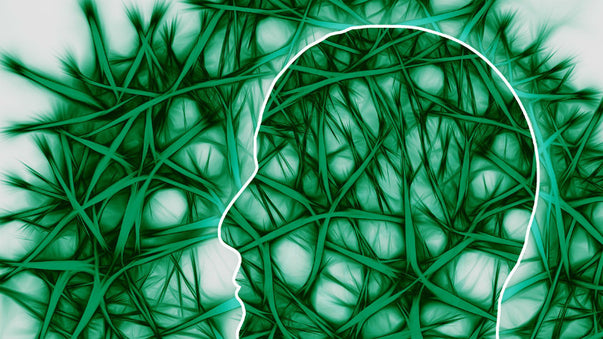Sleep Is Essential to Memory and Intelligence

I (and you) have always known that sleep is essential to physical and mental well-being. Now UC San Diego scientists have confirmed that sleep is essential to memory (see below). Recent memories are consolidated during sleep, and older memories are preserved and protected from being forgotten.
"The brain is very busy when we sleep, repeating what we have learned during the day," said research leader Maksim Bazhenov in a press release issued by UC San Diego. "Sleep helps reorganize memories and presents them in the most efficient way. Our findings suggest that memories are dynamic, not static."
"In other words, memories, even old memories, are not final. Sleep constantly updates them. We predict that during the sleep cycle, both old and new memories are spontaneously replayed, which prevents forgetting and increases recall performance."
"We learn many new things on a daily basis and those memories compete with old memories. To accommodate all memories, we need sleep."
Sleep "may be critical for making possible what we call human intelligence," noted Bazhenov, adding that Artificial Intelligence (AI) researchers may need to add a sleep-like state to computer and robotic systems.
Some people say that sleep is a waste of time that should be engineered out of future human biology, which they imagine as robot-like. But perhaps it will turn out that even robots need sleep!
Sleep Consolidates and Preserves Memories
Researchers at UC San Diego have found that sleep consolidates newly encoded memories and prevents damage to old memories. This is in addition to the many known health benefits of sleep, such as lowering risk of obesity and cardiovascular disease, and improving concentration and overall daily performance.
A study was published in eLife. It suggests that sleep combines consolidation of new memories with re-consolidation of old memories.
Synthesis of Natural Anti-Cancer Compounds
Chemists at Scripps Research Institute have discovered a way to efficiently create a synthetic version of a natural compound called cepafungin I. It has shown promise as an anti-cancer agent.
The compound kills cancer cells by acting on the proteasome. Proteasome is responsible for clearing away the "garbage" produced by cells. When the proteasome's function is blocked, cells are overcome with their waste and die.
The complex molecular structure of cepafungin I makes it difficult to synthesize in quantities useful for research and clinical applications. A research paper published in Cell Chemical Biology describes an efficient method to produce the compound.
Stem Cell Grafts for Spinal Cord Injury
Researchers at UC San Diego have successfully implanted specialized grafts of neural stem cells directly into spinal cord injuries in mice. Using stem cells to restore lost functions due to spinal cord injury has long been an ambition of scientists and doctors.
A study was published in Cell Stem Cell. The researchers document how the grafts grew and filled the injury sites, mimicking the animals' existing neuronal network.
The researchers wish to start clinical trials as soon as possible. They are persuaded that the findings could result in a therapy for spinal cord injury within the decade.
Wireless Low-Power Brain Implants
Stanford University researchers have shown how it would be possible to create a wireless brain implant. It would be capable of gathering and transmitting accurate neural signals. But it would use a tenth of the power required by current wired systems.
Operational brain implants could one day help people with paralysis regain use of their limbs. They could also enable amputees to use their thoughts to control prostheses and interact with computers.
The experimental wireless implants are described in a study published in Nature Biomedical Engineering. They would allow patients to move freely.
Drug Treats Neurodegeneration in Mice
Researchers at Salk Institute have reported that a drug candidate called CMS121 successfully reversed memory caused by inherited Alzheimer's disease in laboratory mice. The drug was previously shown to slow aging in brain cells.
The findings were published in Redox Biology. They also indicate that CMS121 works by changing how brain cells metabolize fatty molecules known as lipids.
The researchers are now pursuing clinical trials.
Blood Thinners Without Bleeding Side Effects
Scientists led by Ecole Polytechnique Fédérale de Lausanne (EPFL) have developed a synthetic blood-thinner. Unlike all others, it doesn't cause bleeding side-effects. Blood thinners (anticoagulants) can keep blood clots from forming or getting bigger.
A research paper was published in Nature Communications. It reports that a highly potent, highly selective, and highly stable molecule can suppress thrombosis while letting blood clot normally following injury.
The scientists tested the molecule with an artificial lung model. And they found that the molecule efficiently reduced blood clotting, all without any bleeding side-effects.
More Articles
Don't miss a beat! In our Pulse Newsletter, Thrivous curates the most important news on health science and human enhancement, so you can stay informed without wasting time on hype and trivia. It's part of the free Thrivous newsletter. Subscribe now to receive email about human enhancement, nootropics, and geroprotectors, as well as company news and deals.
Read more articles at Thrivous, the human enhancement company. You can browse recent articles in Thrivous Views. See other Pulse Newsletter articles. Or check out an article below.
-
What Is Vitamin B Complex Good For?
B Vitamins are necessary for a healthy life. Each vitamin plays an important role in development and maintenance of the ...
-
Enjoy Life Now for Long-Term Well-Being
Achieving long-term goals is important, of course. But we should also allow ourselves to relax and have fun without feelings ...


